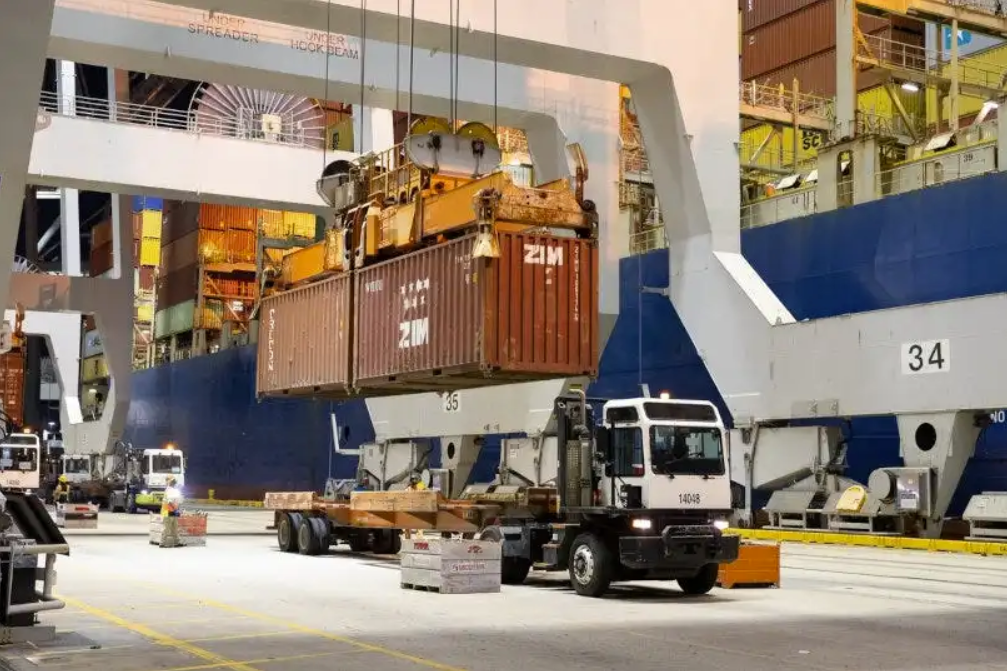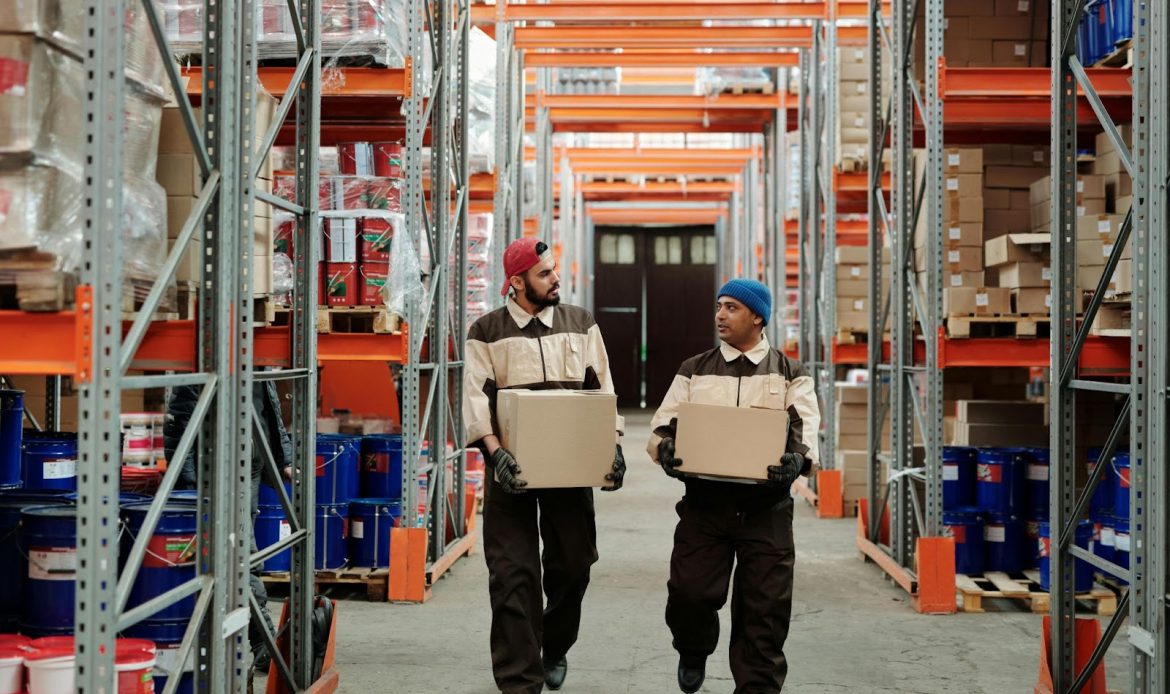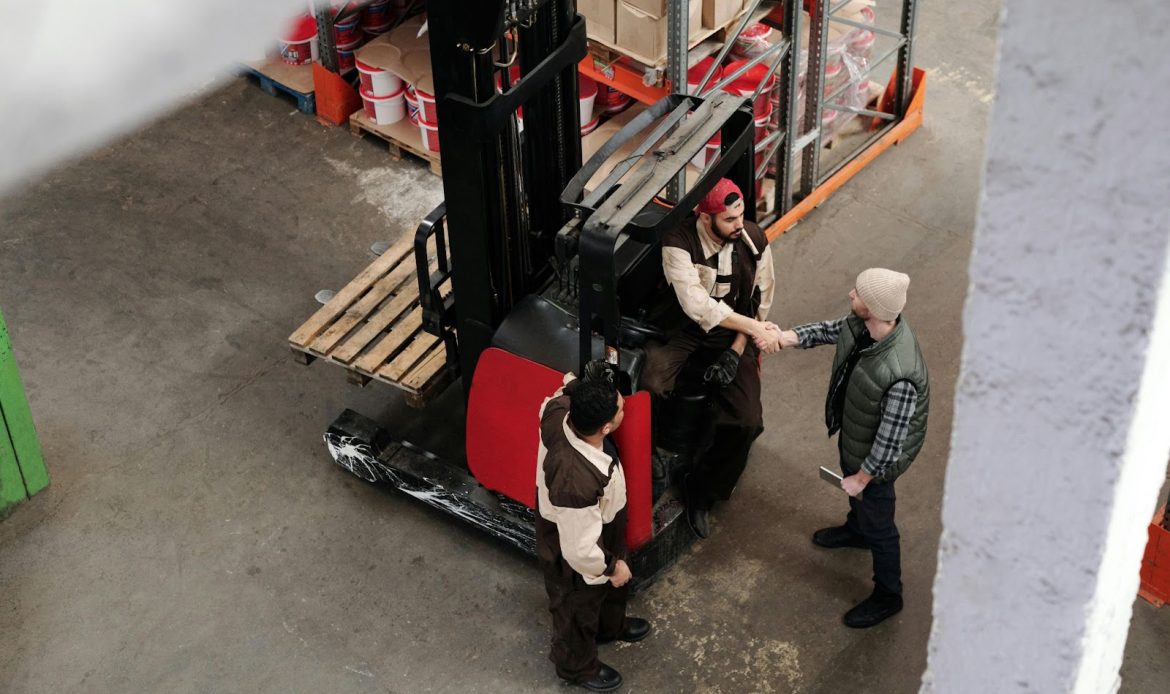
Online shopping in the UK is more popular than ever. The nation is one of Europe’s most profitable ecommerce markets. Offering nationwide deliveries and beyond is a no-brainer.
But there is the matter of how these products will be delivered.
Will you take care of delivering products by yourself? Or perhaps you’re thinking of partnering up with a UK fulfilment centre instead? Perhaps you’re even at a point where you already have an online business, but you’re managing stocks and orders out of a spare room in your house.
If you’re going to outsource your order fulfilment processes to a third-party, there are so many options to choose from, and picking the right fulfilment centre may just be what takes your business to the next level.
This article will offer a brief overview of what a fulfilment centre does and what are the factors to consider in order to choose a fulfilment company that meets your business’ goals for revenue and growth.
What do fulfilment centres have to offer?
Fulfilment centres take charge of shipping products and they are most helpful for sellers who don’t have the capacity or storage space to keep all their inventory. They streamline order processing, shipping, customer service, and returns management too.
This is how it works: sellers send their products to the fulfilment centre, and the outsourced order fulfilment provider will ship the products to the customers for the sellers.
Because fulfilment centres make inventory management and logistics easier, it gives you more time to focus on the growth of your online business.
8 Key Factors for Choosing a UK Fulfilment Centre
As customer expectations continue rising and as they expect faster delivery times, a seamless fulfilment process is key to staying competitive.
Each UK fulfilment centre operates differently. Considering key factors before selecting a partner can directly influence your business’ efficiency, customer satisfaction, and profitability. You need to make sure that you’re choosing not just any product fulfilment company, but the right one.
1. Shipping Speed and Fulfilment Centre Locations in the UK
Fast delivery is an expectation. You customers demand speed and efficiency when they’re shopping online.
Meeting these expectations requires partnering with an e-commerce fulfilment partner that can consistently offer quick and reliable delivery options across the UK.

So why is this important?
Customers are willing to pay a premium for faster shipping, but they will not hesitate to abandon their purchase if delivery times don’t meet their standards. Your chosen fulfilment partner plays a critical role here. They are responsible for making sure that products are dispatched quickly and efficiently.
Determining the fulfilment centre location comes down to one question: Where are your customers?
Shipping couriers use shipping zones to calculate rates for services. A shipping zone is the geographical area that couriers ship to. It also measures the distance a package travels from the point of origin to the destination.
The less distance a package travels, the quicker it gets delivered to your customers doorstep. It also means you have to pay less money for shipping. The more products you sell, the more you get to save time and money compared to orders that have to travel further distances.
Having a fulfilment centre that’s close to your customers, or located near major hubs or towns and cities plays a part in ensuring that shoppers get the quickest turnaround time possible.
2. Technology Integration with Your Current eCommerce Platforms
As a business owner, you’ve got a lot on your plate. On top of already using various digital tools, ecommerce platforms, and applications every day, you also have to think about marketing campaigns, ecommerce business development, product ideation and so much more.
The last thing you want to do is worry about implementing technology and software integration.
While you’re researching fulfilment centres to work with, you should also look into the order fulfilment software they’re using and how seamlessly their software can integrate with your existing ecommerce platforms.
For instance, Green Fulfilment uses an order fulfilment software called Green Portal.
Green Portal provides centralised product management, advanced inventory control, real-time gathering of data insights, streamlined order processing, and sales management on top of seamless integration with platforms like Shopify, WooCommerce, eBay, and Amazon.

When a fulfilment centre’s systems are fully compatible with your existing ecommerce, it creates a smooth flow of data between your store and the logistics processes. It makes inventory management, order management, and shipping easier.
What are the biggest advantages of technology integration?
Real-time inventory management
A technology integration updates stock levels automatically each time an order is placed.
It reduces the risk of overselling or underselling, because the product listings accurately reflect what’s available. This is particularly important during busy seasons or sales events when order volumes increase.
Order tracking
Through technology integration, you gain access to end-to-end visibility of each order. This means you and your customers can track the progress of every order from the moment it’s placed to the time it arrives at the customer’s doorstep. This visibility builds customer trust and reduces the strain on your customer service team.
If customers can easily track their shipments in real-time, they feel more in control and satisfied with the shopping experience.
Streamlined communication with end customers
Using advanced software to sync with your existing ecommerce platform triggers automatic shipping updates that are sent to your customers as soon as an order is dispatched.
Updates include estimated delivery times, tracking numbers, and any relevant shipping milestones. Automated updates reduce the need for manual follow-ups.
Operational efficiency
Integrating fulfilment centre technology with your online selling platform can also make returns management easier.
When your system can automatically process return requests, print labels, and notify both you and your customers of the return status, it eliminates the potential for delays and errors in handling returns.
An effective technology integration improves internal workflows, reduces errors, and saves time.
3. Cost of 3PL Order Fulfilment Services
Unloading the order fulfilment process to a 3PL will involve some initial costs. But in the long run, you ultimately save on labour, packaging supplies, overhead, and more.

For instance, because you’re paying for the full order fulfilment process, your chosen fulfilment centre should not charge you for long-term storage – that’s what a warehouse is for. Fulfilment centres can also get better rates from most carriers because of the volume they ship, and that affects how much they charge you.
The various feeds that you need to consider include storage, order fulfilment, shipping, and returns handling.
Go with a fulfilment centre that offers transparent pricing.
Balancing the costs against the benefits of outsourcing your fulfilment processes will help you make informed decisions that support your business’ long-term success.
4. Handling Returns and Customer Service
A good fulfilment centre plays an important role in making sure that returns are taken care of smoothly. How you deal with returns can impact how happy your customers are and how loyal they’ll be. Complex and slow returns processes lead to frustration and inevitably drives customers away.

On the other hand, a streamlined and hassle-free returns experience can turn even negative situations into positive outcomes.
Fulfilment centres typically offer returns management services that simplify the process for both businesses and customers. Their services include:
- Creating return shipping labels.
- Processing returned items.
- Inspecting products for damages or defects.
- Updating inventory systems to reflect returned stock.
- Issuing automatic refunds through integrated order fulfilment process.
Efficiently handling returns is important for maintaining customer trust. When customers know they can easily return a product and receive a quick refund or replacement, they feel more confident in making a purchase.
Your business needs to work with a fulfilment centre that has an established procedure that can expedite the return process by offering prepaid return labels, drop-off locations, or even reverse logistics solutions that take the product back to the warehouse quickly.
An automated returns management system lets both customer and seller track the status of the return in real-time. Customers can see exactly when their return is being processed, and businesses can monitor the return for quality control and restocking purposes. This transparency builds trust and keeps both parties informed.
To take your customer service to the next level, you should work with a fulfilment centre that has a strong returns process supported by an efficient fulfilment centre. Managing returns effectively results in customer loyalty, reduced impact of returns on profitability, and less operational bottlenecks that come with handling returns in-house.
5. The Fulfilment Centre and its Scalability
The right fulfilment centre makes growth smoother and more manageable. When your business expands – whether through increased sales volumes, new product lines, or international markets – your fulfilment operations must scale accordingly.
You need an ecommerce fulfilment partner that can adjust to your changing needs without disruptions.
What exactly are the key aspects of scalability that you should look out for?
Flexible storage capacity
As your product range and order volumes increase, you’ll also need more storage space. Fulfilment centres that offer scalable warehousing can provide additional space when needed, without requiring you to rent or buy new facilities.
Increased shipping capacity
As order volumes rise, the fulfilment centre you choose should be able to handle a surge in shipments.
Fulfilment partners with established infrastructure and multiple shipping options can accommodate spikes in demand – especially during holiday seasons, flash sales, or product launches. This scalability helps you maintain consistent shipping times and customer satisfaction.
Seasonal scalability
This is for businesses that experience fluctuations in order volumes during specific times of the year. Fulfilment centres with a flexible workforce and advanced order processing systems can ramp up operations to meet peak demands during holidays or sales events.
Without this capability, businesses face delays, errors, or even stockouts, which leads to unhappy customers and lost sales.
Value-added services
Additional services such as kitting (assembling products into sets or kits), custom packaging, and subscription box fulfilment. These additional services can be seamlessly integrated into your fulfilment operations as your business model evolves.
For example, if you start offering personalised products or subscription services, you’ll want a fulfilment centre that can manage these complexities without needing to switch providers.
Geographical scalability
If you expand your market to different regions within the UK or internationally, a fulfilment centre with multiple locations can reduce shipping times and costs.
There are fulfilment centres that have a network of warehouses across different regions, and it allows them to distribute your inventory strategically. This means that products are stored closer to your customers.
Scalable order management and fulfilment software
Fulfilment centres equipped with advanced technology can automate and streamline processes, such as order picking, packing, and shipping.
As more orders come in, they’re processed with the same speed and accuracy. This kind of technology also allows businesses to handle larger order volumes without the need for additional manual labour, saving time and reducing operational costs.
Complex fulfilment solutions
International shipping options, customs handling, and currency conversion are a few examples. A fulfilment centre that can scale with your global ambitions will offer expertise in cross-border logistics. It helps you navigate these challenges while keeping costs under control.

6. Flexibility in Meeting the Business’ Needs
Flexibility is the cornerstone of a responsive and reliable fulfilment centre. Where scalability focuses on accommodating growth, flexibility addresses the fulfilment centre’s ability to adapt to unique or changing requirements in real time.
You need assess the following to gauge a fulfilment centre’s flexibility:
- Customisation Options: Can they offer bespoke solutions for your business? Check if they offer personalised packaging, custom branding, or unique kitting services. You’ll want your brand identity to shine through in every order.
- Operational Agility: During sudden shifts in product demand or when handling unexpected supply chain disruptions, a flexible fulfilment centre should be capable of implementing quick changes without compromising service quality.
- Hybrid Fulfilment Models: Opt for order fulfilment centres that combine in-house logistics with third-party partnerships.
- Short-term Solutions: If your business wants to test a new market or launch temporary promotions, fulfilment centres should be able to offer short-term storage or services that can help mitigate risk.
- Customer-centric Support: Flexibility extends to customer service as well. Some offer after-hours assistance, multilingual support teams, or dedicated account managers to cater to different client needs.

7. Fulfilment Centre Customer Service and Support
You need a fulfilment centre that acts as more than just a logistical partner, but as an extension of your business. Exceptional customer service from your fulfilment provider can make a significant difference in your day-to-day operations.
The level of service they provide directly impacts your ability to meet customer expectations and efficient operations.
So what do you need to look for in terms of customer service?
- Dedicated Account Managers: A reliable point of contact can give you advice for optimising your fulfilment processes, plus offer quick resolutions for any issues you encounter.
- Proactive Communication: Your fulfilment centre should keep you informed before problems arise. They should notify you about anything and everything concerning your fulfilment process, from stockouts to order discrepancies.
- Real-time Support: Fulfilment issues can occur outside traditional business hours. Centres offering 24/7 support or extended hours help ensure uninterrupted service for your e-commerce operations.
- Transparent Reporting: Clear updates about inventory levels, order processing times, and returns help you make informed decisions.
8. Comparison with Other UK Fulfilment Services
Part of the process of finding the right fulfilment centre is to compare various providers in order to choose the one that best suits your business’ needs.
Here’s a breakdown of the key factors to compare and why each one is absolutely important:
Factor #1: Service Quality and Accuracy
This factor directly impacts customer satisfaction. Look for fulfilment centres with a reputation for high order accuracy and efficient handling.
Ask for performance metrics like order accuracy rates, average processing times, and client testimonials. Many ecommerce fulfilment providers can also offer tours of their facilities, where you can witness their operations firsthand.
Factor #2: Technology Integration
Do they offer technology integrations? Providers should offer real-time tracking of inventory, order status, and shipping.
Compare the technology stack of each fulfilment provider to see which offers the most efficient, user-friendly system for your business.
Factor #3: Shipping Times and Carrier Partnerships
Speed of delivery is a major competitive advantage in ecommerce, and fulfilment centres with robust shipping capabilities can help you meet customer expectations.
Compare providers on their shipping options; such as same-day shipping, next-day delivery, and international shipping capabilities. Consider how quickly orders are processed from the time they’re received to the time they’re shipped, as this can vary between providers.
Factor #4: Geographic Reach and Location
Where the fulfilment centre is located plays a crucial role in how fast and cost-effective deliveries are.
Centres situated near major transport hubs, such as airports, seaports, and motorways, will generally be able to move products more quickly and at lower costs. Evaluate their warehouse network and consider how well it matches your target market’s location.
Factor #5: Costs and Pricing Models
Fulfilment costs are different from one another, depending on the provider’s pricing structure. Some fulfilment centres offer all-inclusive pricing, while others charge separately for each service.
Look for a fulfilment centre that offers transparent pricing models that also align with your business model. For example, if you experience seasonal fluctuations, find out if the fulfilment provider charges flexible or flat rates for warehousing and processing.
Factor #6: Returns Management and Customer Service
What is the fulfilment centre’s process for inspecting, restocking, and refunding returned items? Some providers offer more comprehensive returns management services, such as automated return labels, product refurbishment, or even exchanges.
Assess the fulfilment provider’s customer service. Reliable, responsive customer support is critical, especially when unexpected issues arise.
Factor #7: Scalability and Flexibility
As your business grows, you’ll need a fulfilment partner that can grow with you. Some fulfilment centres may be well-suited for smaller companies but struggle to handle larger volumes or more complex fulfilment requirements.
Evaluate how easily a fulfilment centre can accommodate increased order volumes, additional product lines, or international expansion.
Factor #8: Reviews, References, and Reputation
Look into a fulfilment centre’s track record as it is often the best indicator of future performance. Check the client reviews, case studies, and testimonials to get an idea of their reputation within the industry.
Fulfilment centres can supply references upon request. Another thing to do is talk to other businesses that have used the fulfilment service. They can provide valuable insights into their experience, including any challenges or issues they faced.
You need a fulfilment centre that is reliable, accurate, and customer-friendly. These traits will likely be a more dependable partner for your business.

Final Thoughts
Think carefully about your decision to work with a fulfilment centre. Will they genuinely help you grow your business?
Don’t just choose an ecommerce fulfilment service provider that will help you in the moment. Choose a partner who will help you grow in the long term.
During those early discussions, talk to your potential order fulfilment partner about growth and ask how they will support you with this.
Ask yourself these questions before deciding to work with a UK fulfilment centre:
- Do you feel like the company understands your needs?
- Do they answer your questions genuinely and honestly?
- Are they transparent about their pricing costs and services?
- Do they have case studies and reviews available for you to read?
The right fulfilment centre can improve shipping speed, enhance the overall customer experience, reduce the operational burden on your business, and offer the scalability your business needs in order to grow.
